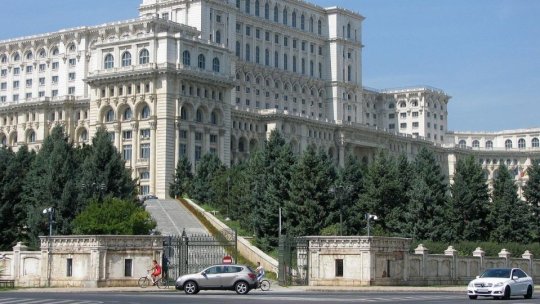Financial Press Review, 19 May
Articles from the dailies Ziarul Financiar, Curierul Naţional and Bursa.

Articol de Dinu Dragomirescu, 19 Mai 2011, 19:00
The Ziarul Financiar wonders in a headline: ‘Where are the 200 000 new employment contracts sealed in the past two weeks that Boc is talking about?’
‘Labour Inspection has announced this week that between 2 and 15 May (less than two weeks since the new Labor Code came into force) 177 746 new employment contracts were recorded.
However, ‘there is no information as to which companies employed these people or how many contracts expired in the same period (…) in order to see the real evolution of the employment contracts currently in force due to the new more flexible work legislation’.
‘In the two weeks since the new Labor Code came into force there has been only a 6 percent increase in employment offers, compared to the two weeks before that’.
‘The rise is insignificant; this is the normal course of events’.
‘The market is just starting to stretch its legs’.
The Curierul Naţional opens with the headline ‘Billions could dock at the Black Sea’. The article presents the conclusions of an international seminar that took place in Bucharest yesterday.
‘Infrastructure is responsible for 75 percent of our problems and is scaring away prospective investors. We have an underdeveloped infrastructure on all levels: roads, railways, ships and planes’.
As a consequence, investors leave for Bulgaria or even Slovenia.
Another disadvantage is the legislation.
‘Creating an adequate legislative and fiscal framework for transports and logistics would bring
25 billion Euros in our GDP in 2025, the Curierul Naţional quotes Secretary General of the
National Union of Road Hauliers from Romania, Radu Dinescu.
The Bursa presents a conversation with Fiscal Council President Ionuţ Dumitru pointing out that ‘the problem of the budget has improved due to the program implemented two years ago, but there are still problems. We still have a big budget deficit that is mostly generated by social care.
‘Although the percent is decreasing, around 70 percent of the cash inflow is pumped into salaries, pensions and social care. This way, Romania, forced to borrow money to pay for running expenses, has increased its public debt’.
‘If we borrow money to pay for running expenses, the situation is bound to be unsustainable in the long run and has to be improved. Authorities have to respect the obligations is took on and continue structural reforms’, Ionuţ Dumitru concluded, quoted by the Bursa.
Translated by: Gabriela Lungu
MA Student, MTTLC, Bucharest University









